01:38
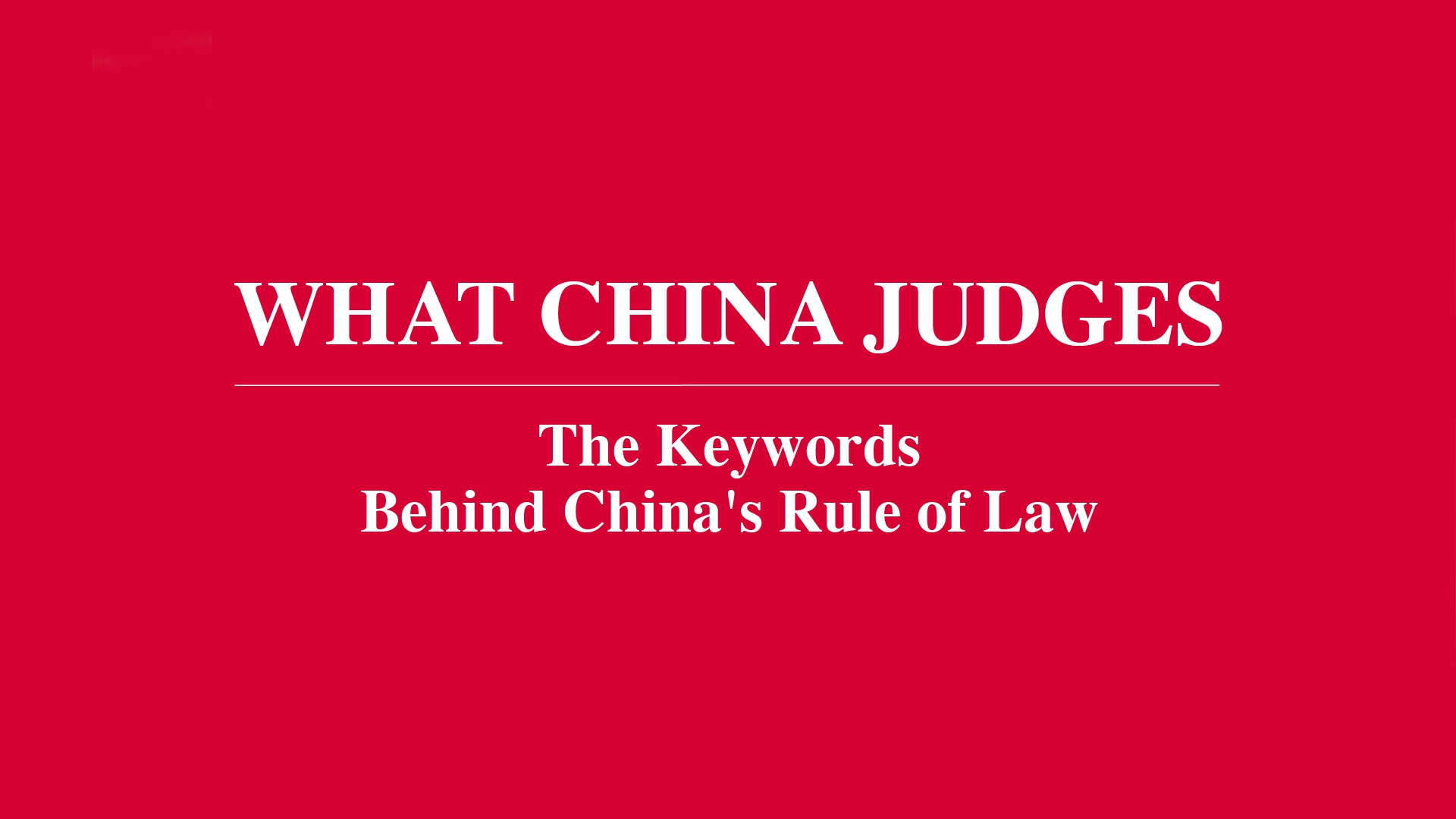
The importance of the legal system and rule of law to strengthen Chinese society is always a focus on Chinese political agenda.
Chinese President Xi Jinping, also general secretary of the Communist Party of China (CPC) Central Committee, called the implementation of the rule of law a "guarantee for China's long-term development" and has consistently urged reform of the country's judicial system to follow the path of socialist rule of law with Chinese characteristics.
The fourth plenary session of the 19th Central Committee of the CPC which concluded last month in Beijing reiterated the importance of "advancing law-based governance in all areas" while confirmed the notable strength in "ensuring law-based governance in all fields, building a country of socialist rule of law, and guaranteeing social fairness and justice and the people's rights."
Here is an introduction to China's rule of law and its achievement in the past year.
China's judicial system is made up of many sub-systems. But the most frequently mentioned parts are the people's court system, the people's procuratorate system, and the public security system.
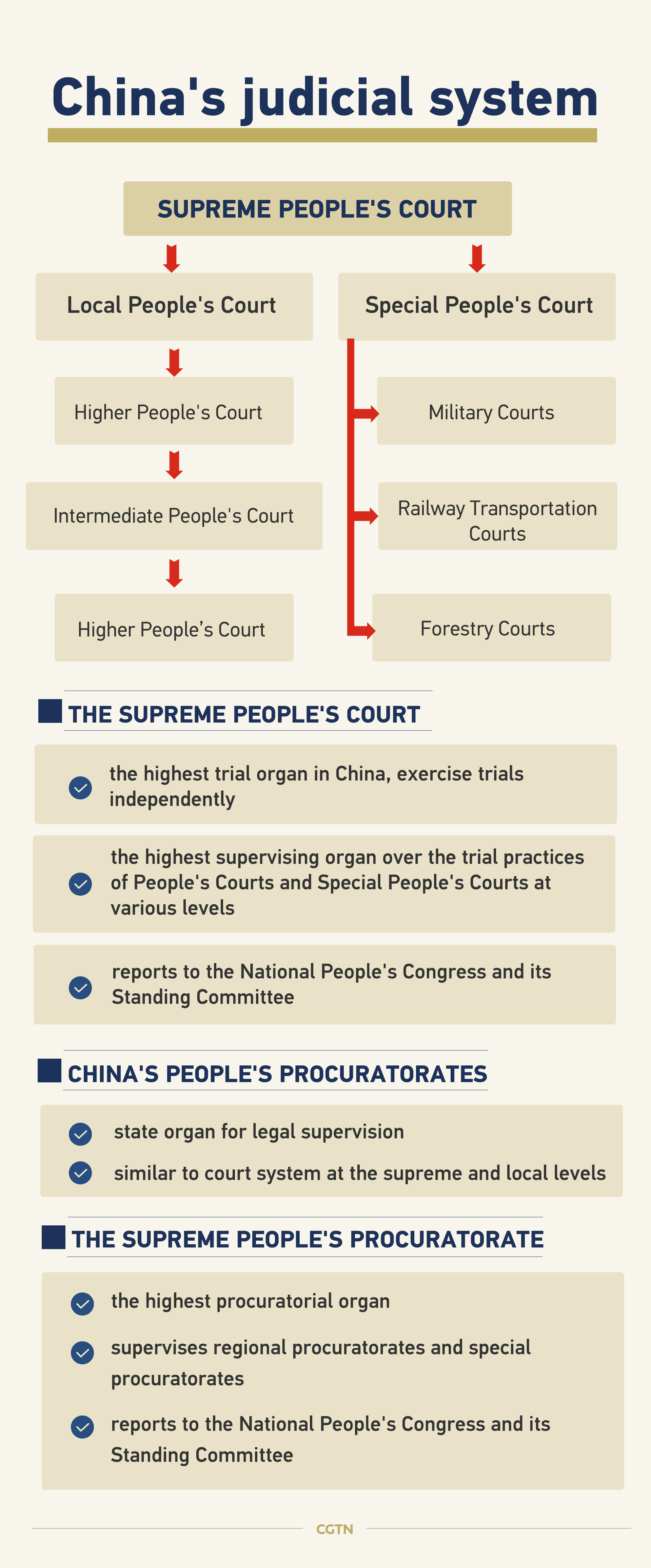
Grassroots courts refer to tribunals in counties, autonomous counties, cities without administrative districts, or administrative districts of cities; intermediate courts are set up in prefectures, cities directly under provinces (also autonomous regions and municipalities directly under the Central Government); higher courts are those set up in provinces (also autonomous regions and municipalities directly under the Central Government).
Judicial precedents are not enforceable in China. The Supreme People's Court (SPC), however, bears the authority to issue Judicial Interpretations as guidelines to the trials, which are nationally enforceable.
China's people's procuratorates are "the state organ for legal supervision." Like the court system, procuratorates are set up at the supreme and local levels. But the country's prosecution system has a top-down structure, in which higher level procuratorates direct the work of those at lower levels. This is noticeably different from the court system in which the higher court supervises the lower court.
A glimpse of China's achievement in rule of law
As seen from the work reports of the SPC and the Supreme People's Procuratorate (SPP), Chinese judicial and procuratorial organs have maintained high pressure on law violations, to safeguard justice, social stability and development, and based their work on "people's increasing demands for democracy, the rule of law, fairness and justice, security, and a better environment in a new era."
Remarkable achievements have been made on anti-corruption, cracking down on organized crimes, enhancing the enforcement of punishment on environment and intellectual property related crimes.
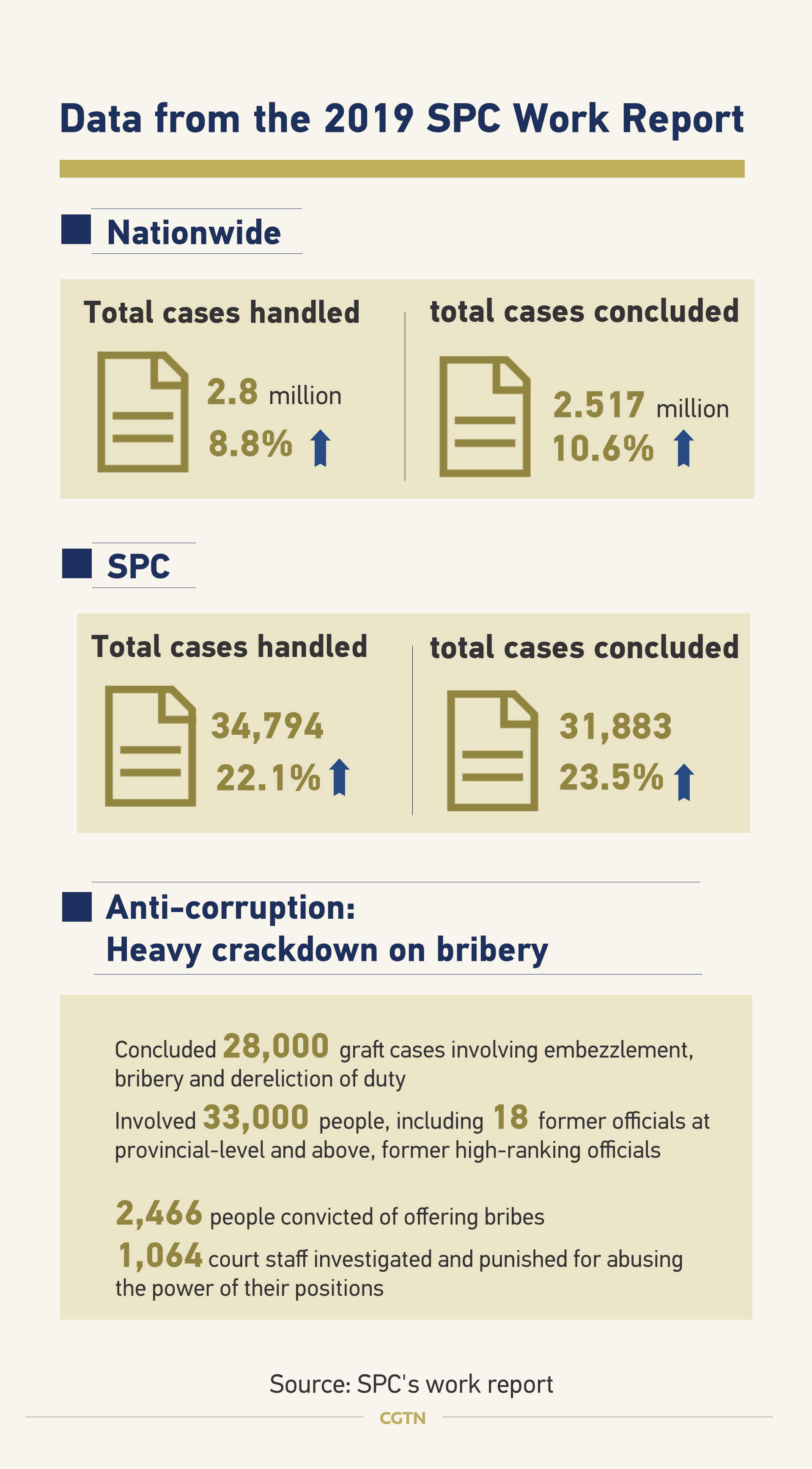
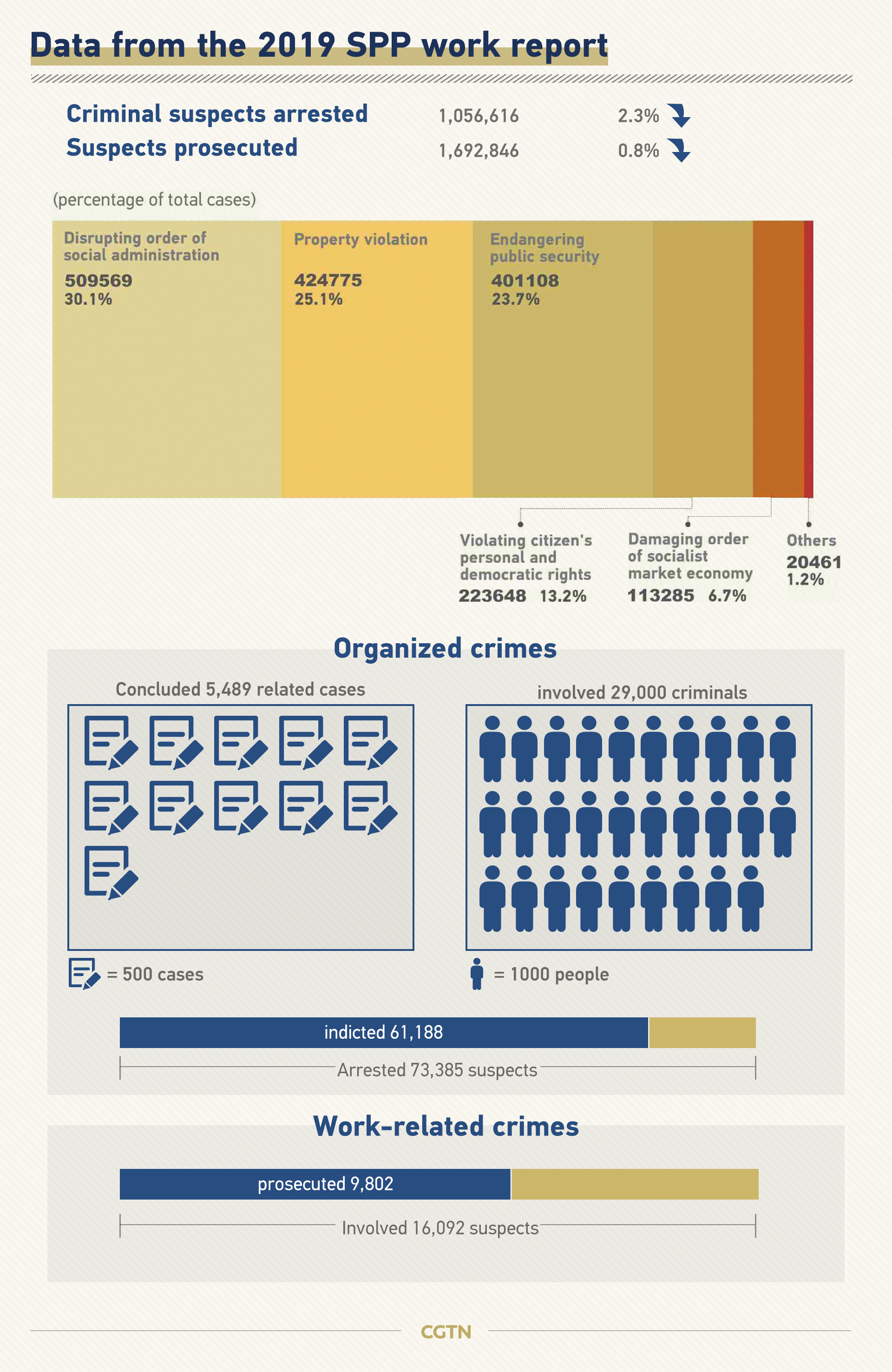
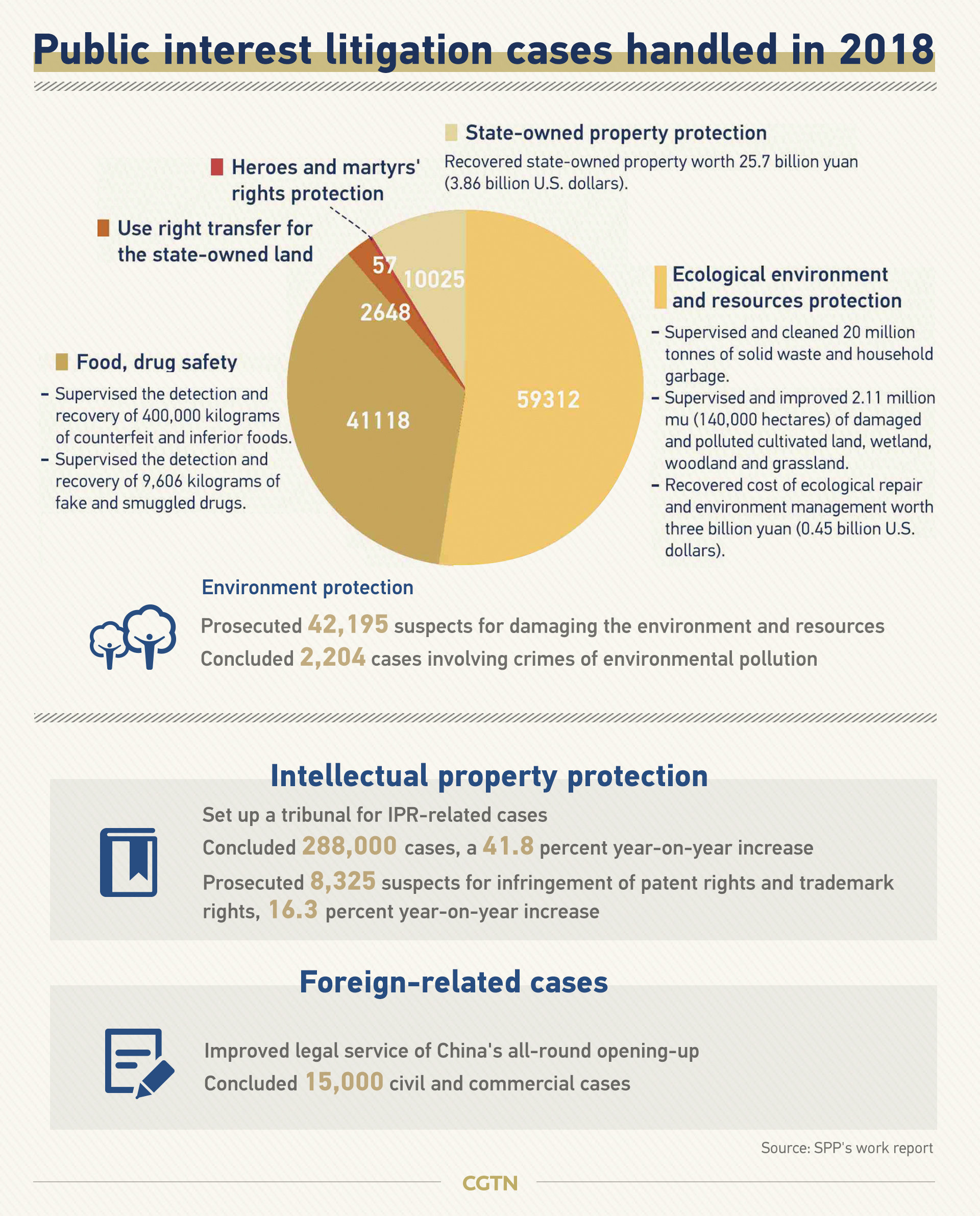
Apart from that, the environment for lawyers has also improved since the legal reform started in 2012.
From 2013 to 2018, the number of Chinese lawyers has increased to 423,000, the number of law firms have also reached to 30,000.
The plenum called for "advancing the national governance system and modernization of governance capabilities" while legal governance, as one of the important aspects of the national governance system, has witnessed remarkable achievement in various aspects.